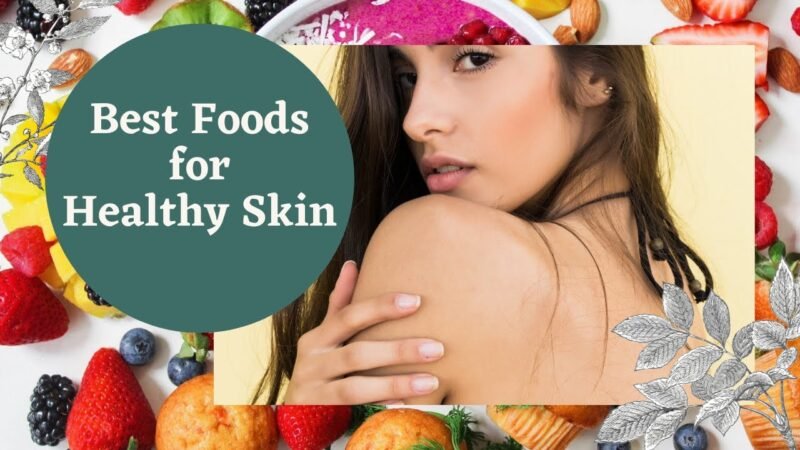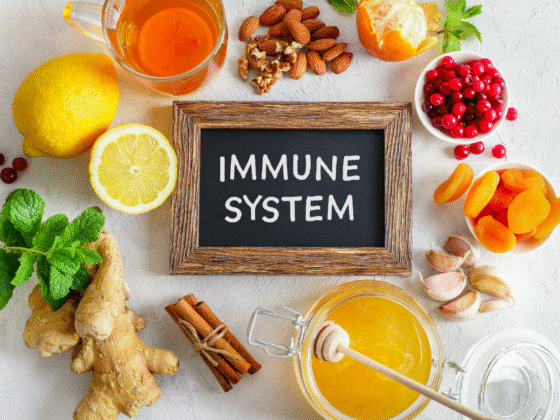Introduction
Healthy skin is often seen as a reflection of internal health. While there are numerous skincare products available that promise to help you achieve glowing, youthful skin, the truth is that what you eat plays a significant role in the appearance of your skin. A diet rich in nutrients, antioxidants, and vitamins can help repair skin cells, reduce inflammation, and protect against the signs of aging.
In this article, we will explore the best foods for healthy skin that will not only improve your skin’s appearance but also boost your overall health. These nutrient-packed foods will give you a glowing complexion, reduce wrinkles, and promote a clear and vibrant skin tone.
Internal Link: For more tips on natural skincare, check out our article on “Home Remedies for Glowing Skin.”
1. Avocados: A Rich Source of Healthy Fats
Why Avocados Are Good for Your Skin
Avocados are packed with healthy fats, particularly monounsaturated fats, which are essential for maintaining skin moisture and elasticity. The high levels of antioxidants, including vitamin E, in avocados help protect the skin from oxidative damage caused by free radicals.
Additional Benefits of Avocados for Skin
- Hydration: The healthy fats in avocados help lock in moisture, making them an excellent food for dry skin.
- Vitamin C: Avocados also contain vitamin C, which is crucial for the production of collagen—a protein that helps keep the skin firm and youthful.
To incorporate more avocados into your diet, enjoy them in salads, smoothies, or simply spread them on toast.
2. Berries: Antioxidant Powerhouses
How Berries Benefit Your Skin
Berries such as blueberries, strawberries, raspberries, and blackberries are rich in antioxidants, particularly vitamin C and anthocyanins, which help reduce inflammation, repair skin damage, and combat the signs of aging. Antioxidants protect your skin from free radicals that contribute to premature skin aging and wrinkles.
Berries for Collagen Production
Vitamin C in berries plays a vital role in the production of collagen, which is the protein responsible for keeping your skin smooth and firm. Eating a variety of berries regularly can help keep your skin looking youthful and radiant.
Enjoy berries as a snack, in smoothies, or added to your morning yogurt.
3. Fatty Fish: Omega-3 Rich Foods for Radiant Skin
Why Fatty Fish Is Beneficial for Skin Health
Fatty fish like salmon, mackerel, and sardines are excellent sources of omega-3 fatty acids, which are essential for maintaining the skin’s integrity and moisture levels. Omega-3 fatty acids help keep the skin supple and hydrated, reducing the risk of dryness and flakiness.
Additional Skin Benefits of Omega-3s
Omega-3s also have anti-inflammatory properties, which can help soothe irritated skin and reduce conditions like acne, eczema, and psoriasis. Moreover, omega-3 fatty acids can protect the skin from the harmful effects of UV radiation.
Include fatty fish in your diet at least twice a week to reap the benefits of omega-3s.
4. Nuts and Seeds: The Skin-Friendly Snacks
How Nuts and Seeds Improve Skin Health
Nuts and seeds, such as almonds, walnuts, chia seeds, and flaxseeds, are packed with essential nutrients like vitamin E, omega-3 fatty acids, and zinc. These nutrients are essential for maintaining healthy skin, preventing acne, and reducing the appearance of fine lines and wrinkles.
Vitamin E for Skin Protection
Vitamin E is a potent antioxidant that helps protect the skin from oxidative stress and sun damage. It also helps maintain skin elasticity and smoothness, reducing the risk of sagging skin as you age.
Nuts and seeds are easy to incorporate into your diet as snacks, or you can sprinkle them on top of salads, oatmeal, or yogurt.
5. Sweet Potatoes: Vitamin A for Skin Regeneration
Why Sweet Potatoes Are Great for Skin
Sweet potatoes are a fantastic source of beta-carotene, which the body converts into vitamin A. Vitamin A is crucial for skin cell regeneration, which helps keep your skin looking fresh, youthful, and free of acne. It also helps protect your skin from the harmful effects of UV rays.
How Vitamin A Affects Your Skin
Vitamin A promotes the production of new skin cells, helping to heal damaged skin and reduce the appearance of fine lines and wrinkles. It also helps regulate oil production, preventing clogged pores and acne.
Include sweet potatoes in your diet by roasting them, adding them to soups, or using them as a base for casseroles.
6. Green Tea: Anti-Inflammatory and Skin Soothing
How Green Tea Benefits Your Skin
Green tea is loaded with antioxidants, particularly catechins, which are powerful anti-inflammatory compounds that help reduce skin irritation and redness. Drinking green tea regularly can help protect your skin from damage caused by free radicals and environmental pollutants.
Green Tea for Acne-Prone Skin
The anti-inflammatory properties of green tea can also help reduce acne breakouts and calm irritated skin. Some studies suggest that applying green tea topically can reduce acne lesions and prevent future breakouts.
Enjoy green tea as a beverage, or apply it topically as a toner for soothing relief.
7. Tomatoes: Lycopene for Skin Protection
Why Tomatoes Are Good for Your Skin
Tomatoes are a rich source of lycopene, a powerful antioxidant that helps protect the skin from sun damage and reduces the risk of skin cancer. Lycopene helps neutralize free radicals and repair damaged skin cells, making it an excellent food for preventing premature aging and wrinkles.
Additional Benefits of Lycopene
Tomatoes also contain vitamin C, which supports collagen production and skin health. Regular consumption of tomatoes can improve skin texture, tone, and radiance.
Add tomatoes to your diet by enjoying them in salads, soups, or as a base for sauces.
8. Spinach: A Green Superfood for Glowing Skin
How Spinach Benefits Your Skin
Spinach is rich in vitamins A, C, and E, all of which are essential for healthy skin. Vitamin A helps with cell turnover, vitamin C promotes collagen production, and vitamin E protects your skin from oxidative stress. Spinach also contains antioxidants that help combat signs of aging and promote a healthy complexion.
Spinach for Hydration
The high water content of spinach also helps keep your skin hydrated and plump, reducing the appearance of dryness and fine lines.
Incorporate spinach into your diet by adding it to salads, smoothies, or sautéing it as a side dish.
9. Carrots: Beta-Carotene for Skin Repair
Why Carrots Are Beneficial for Skin Health
Carrots are packed with beta-carotene, which the body converts into vitamin A. Vitamin A is essential for skin regeneration and repair. It helps protect the skin from UV damage and supports the production of new skin cells.
How Carrots Promote Healthy Skin
The antioxidants in carrots help reduce the appearance of wrinkles and fine lines while improving the overall texture of the skin. Carrots also promote skin hydration, keeping your skin soft and glowing.
Add carrots to your diet by enjoying them as a snack, adding them to soups, or juicing them.
10. Dark Chocolate: Skin-Boosting Antioxidants
How Dark Chocolate Supports Skin Health
Dark chocolate, particularly varieties that contain at least 70% cocoa, is rich in flavonoids—antioxidants that protect the skin from damage caused by free radicals. Flavonoids also help increase blood flow to the skin, providing it with more nutrients and oxygen.
Dark Chocolate for Hydrated Skin
Studies suggest that dark chocolate can improve skin hydration and protect against UV damage. Eating dark chocolate in moderation can lead to a more radiant and youthful complexion.
Enjoy dark chocolate as an occasional treat or add it to smoothies and desserts.
Conclusion
What you eat has a profound impact on the health of your skin. By including nutrient-dense foods like avocados, berries, fatty fish, and sweet potatoes in your diet, you can nourish your skin from the inside out. These foods provide essential vitamins, antioxidants, and healthy fats that support skin health and protect against aging, sun damage, and acne.
If you’re looking for more ways to enhance your skin’s appearance naturally, don’t forget to check out our article on Home Remedies for Glowing Skin for additional tips on achieving a radiant complexion.


